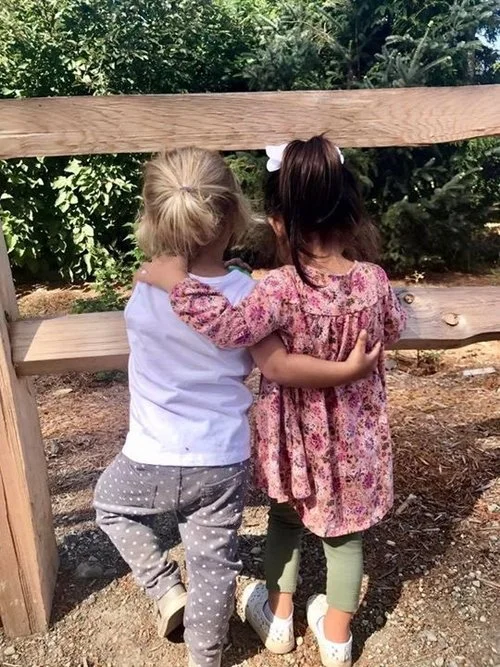7 Life Lessons I Learned from Hurricane Katrina
As Hurricane Harvey is closing in on Texas, I can’t help but think about my experiences as the Director of the Medical Triage Unit at the New Orleans Convention Center. Although I’ve been responding to international disaster for over 30 years, Katrina had a huge impact on me. I have stories and images forever embedded in my brain. If Haiti was the most devastating experience of my life, I’d have to say that Katrina was the wildest. This is not a post on “disaster preparedness”. There are plenty of sites on the web that can teach you that. Sometimes your job can feel like a "disaster" so I thought I would share with you a couple of the lessons that I've learned about how to make a difference under pressure. I suspect that at least a few of these will apply to you.
1. You go where you look
Our brains are wired to protect us and so we find it more common to focus on threats. In other words, our brains tend to focus on the negative. If you throw in sleep deprivation, our brains experience a nearly 70% decrease in the ability to encode positive memories. Negative memories are not significantly impaired. So, when you look back on your rough week, if you missed out on sleep, you're more likely to remember the negative experiences than the positive.
I learned the hard way when riding my mountain bike that we go in the direction that we look. It's a law of nature called Target Fixation. If you focus on the negative, you'll end up negative. What we focus on has a huge impact on how our brains work. Research shows that if, within two hours of going to bed, you write down three positive things that you did during the day you will sleep better, fall asleep quicker if you wake up, and feel more rested in the morning. Give it a try. It works.
2. If you know your "why", you'll figure out your "how"
It's amazing what you can do when you're motivated. After Hurricane Katrina, a man was passing out blankets to the elderly. He brought them from home and just wanted to help. The fact that he was displaced and unlikely to be able to go back home didn't stop him. When he ran out of blankets he improvised. His solution changed my life. Take time to listen to my TEDx talk to find out what he did: https://youtu.be/YWyo1qlNd3g.
3. Gratitude renews hope, inspires life and builds relationships
I'm continually amazed at the power of gratitude. My friend Tanmeet Sethi talks about the following formula: Suffering = Pain x Resistance. When we dwell on the negative and chew on it like a cow chewing its cud, we experience way more suffering than if we accept the given situation and look for something we can be thankful for. People would much rather be with those that are able to keep their heads up when times are tough. People are drawn to those who are positive. It makes for much closer relationships. I highly recommend the 5 Minute Journal app. I use it regularly. 211EFC90-A50D-4EDF-89FB-247E96EE9FA8.JPG
4. Don't do it alone.
King Solomon said it best: "A cord of three strands is not quickly torn apart."
5. There's no such thing as FAILURE, only FEEDBACK
I approach problem solving in high stakes environments with a strategy that I call Disaster-Improv. There are three parts: SEE, SORT, and SOLVE. I SEE what's going on. I SORT out the priorities and I SOLVE the problem. Most importantly, the strategy is cyclical. I will confess, there have been plenty of times where my first attempt actually made the problem worse. It is the bulldog determination that I won't stop until it's better that leads to great outcomes. So, second time around when I SEE, I'm looking for what I've learned. I then SORT out the priorities and SOLVE it again. Sometimes it takes several times around before I arrive at the best solution. At any point, I could derail at any time by coming to the conclusion that I've failed. Will Rogers said it well: "The road to success is dotted with many tempting parking spaces." I need to be willing to make mistakes in order to make the greatest impact. I have to remind myself that it isn't all about me. It is about serving those in need.
6. If you can't bend, you'll break
People who say, "That's not the way we do it" don't get much done in a rapidly changing environment.
7. Prepare
OK, just one disaster preparedness tip: 3 days of food and water isn't enough. Buy yourself a water filtration device. You can live for a long time without food, but only about 3 days without drinkable water. I use one of these: http://amzn.to/2w6egyr but there are several other types available.
Practical application:
Just before you go to bed, write down three things that you did well today.
Take some time to ponder your "why". Discuss it with your coworkers, family and friends.
Download and use the 5 Minute Journal App
Get a piece of paper and write the names of 10 people that are "on your team". Put the list on the back of your medicine cabinet. Meet with at least one of them every week. You now have a list of people to call when times get tough.
SEE, SORT, SOLVE and REPEAT and REPEAT and REPEAT.
IF you find yourself saying, "That's not the way we do it", take a full stop and ask yourself "why?". Perhaps it is time to try something new...and improved?
Buy a water filtration device and keep it in your car.


